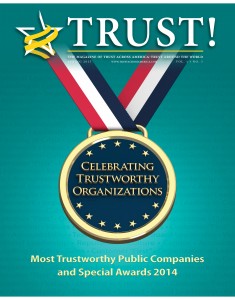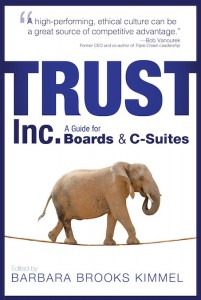“We all know the next crisis will come….but in the meantime it’s business as usual.”
Those were the exact words spoken by the Chief Communications Officer of a well-known financial services company at a recent conference I attended on trust.
Other than an enlightened handful, most companies continue to ignore the business case for trust and its inherent strategic advantages:
- Fewer crises and the ability to recover more rapidly as a result of having “banked” trust
- Faster decision making
- Higher employee engagement
- Greater innovation (high trust fuels high innovation, not the other way around)
- Increased long-term profitability
But instead, let’s continue to watch trust decline across all major institutions, talk about it from time to time, and choose never to implement long-term trust-building strategies. After all, it’s “business as usual” until the next crisis as evidenced by our current collective mentality:
- Disengaged boards with minimal diversity
- Short-term profit maximization at all costs
- Decreasing CEO tenure and increasing compensation packages tied to quarterly earnings
- Siloized decision making
- Increased regulation and larger legal and compliance departments
- High employee turnover
- Using CSR or sustainability “programs” as corporate window dressing
- Taking trust for granted or passing it off to the communications folks like a hot potato.
But as a reminder, industry is not destiny and “hats off” to those companies and organizations that have chosen a different path. We applaud you for your efforts. You can read about them and the updated business case for trust in the Spring issue of TRUST! Magazine published this week by registering on our signup link.
Barbara Brooks Kimmel is the Executive Director of Trust Across America-Trust Around the World whose mission is to help organizations build trust, and runs the world’s largest membership program for those interested in the subject. She is also the editor of the award winning TRUST INC. book series and the Executive Editor of TRUST! Magazine. In 2012 Barbara was named “One of 25 Women Changing the World” by Good Business International.
Our annual poster, 52 Weeks of Activities to Increase Organizational Trust is available to those who would like to support our work by making a small donation.
Copyright 2015, Next Decade, Inc.






Recent Comments